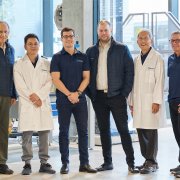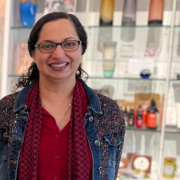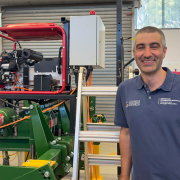Advancing Nanomaterials from Lab to Market: Ablano’s Journey
Ablano, a UWA spin-out, is pioneering the commercialisation of advanced nanomaterials to replace traditional materials in high-tech industries. Backed by Professor Hui Tong Chua’s research team, Ablano transforms precursor powders into few-layer graphene and boron nitride nano onions—powders that enhance strength and act as super lubricants. Their patented lamp ablation technology and access to UWA’s cutting-edge microscopy tools have accelerated progress. With a pilot facility, international patents, and nearly $4 million raised, Ablano is targeting aviation-grade lubricants and broader applications. Their collaborative model with UWA researchers exemplifies how open-access infrastructure can drive innovation from lab to market.










